Baha’is are experiencing “increasing insecurity” in the Islamic Republic of Iran and in a number of countries in the Middle East and North Africa region, according to a new report and its annex by the United Nations (UN) Special Rapporteur on freedom of religion or belief, Dr Ahmed Shaheed.
The report, “Rights of persons belonging to religious or belief minorities in situations of conflict or insecurity,” and its annex, are the first time a UN document has given exclusive focus to the situation of the Baha’is in several countries.
The Special Rapporteur’s report was released during the 49th session of the Human Rights Council in Geneva. The annex, which said that concerns regarding the Baha’is “have persisted and even escalated across several country contexts”, was based on a November 2021 symposium for international organisations and governments, UN experts, members of civil society and representatives of the Baha’i International Community (BIC).
“Dr Ahmed Shaheed’s report illustrates the perilous situation Baha’is face in Iran and Yemen,” said Bani Dugal, the BIC's Principal Representative to the United Nations, “and the discrimination they face in Qatar and Tunisia. We hope they will inform the actions of Human Rights Council members and remind the authorities that the world is watching.”
Baha’is lack legal recognition in Iran and Yemen, the annex said, where they are persecuted, and in Qatar and Tunisia, where Baha’is have suffered discrimination. The annex noted that a lack of recognition exposed Baha’is to violations of their basic rights.
Activities of Baha’is in “manifesting” their faith, according to Dr Shaheed, are criminalised in Iran. Laws added to Iran’s penal code in 2021 may also criminalise expressing Baha’i beliefs or even identifying as a Baha’i. The “discrimination against and persecution of Baha'is is State-driven and systematic,” the annex said, and Baha’is “reportedly have experienced violence and restrictions on manifesting their faith” in particular if these are seen to contradict Islamic principles.” Baha’is also face discrimination in accessing education and employment and were “subject to smear campaigns and speech that may incite violence against them based on their faith identity.”
In Yemen, the “discrimination, hostility, and violence against the Baha'i community is reportedly systematic,” the annex said, adding that Houthi leaders have “called for the arrest of Baha'is based on their faith identity, with some already convicted, others deported, their gatherings raided, institutions banned and attempts underway in the courts to seize their properties.” Yemenis had also been incited to “engage in violence” against Baha’is in a televised speech by the Houthi leader.
Dr Shaheed – in an indirect reference, which the BIC said was to Iran – also noted concerns over “rising influence of external actors in Yemen” which may be exacerbating the situation.
Baha’is in Qatar are in “a precarious situation,” the annex said, due to “administrative deportations and blacklisting resulting in loss of employment, income, and separation of families.” And in Tunisia the government had refused to recognise the Baha’i community. During legal appeals brought by Baha’is, it was reported, “discriminatory claims about the precepts of the Baha'i belief, in addition to unfounded concerns relating to national security and social peace” were expressed.
Dr Shaheed’s report stressed that “State and non-State actors have exploited the identity of religious or belief minorities to further their political, economic, and military objectives,” adding that Baha’is in Iran and Yemen have been targeted “through hateful rhetoric that seeks to mobilize the public against them and ‘legitimize’ policies and practices that harm them ... authorities and others have accused the Baha'i community of being foreign agents or enemies of the State, including ... Israeli spies.”
The report said that targeting Baha’is in this way entrenched widespread “fear, suspicion, and discrimination ... leaving many members of the Baha'i community feeling more fearful and exposed to violence.”
The report recommended UN Member-States to “recall their international human rights obligations towards religious minorities,” including the Baha’is; relevant agencies within the UN system were encouraged to “adopt a more cohesive and coordinated approach” in responding to the situation facing religious minorities; and both States and civil society were asked to consider establishing new “platforms” to advocate for the rights of the Baha’is such as a “friends of Baha’is” working group.
The report and annex are available online at the UN’s Office of the High Commissioner for Human Rights.
Related coverage:
UN General Assembly Calls on Iran to Eliminate Religious Discrimination
Iran Steps up Tactics to Eliminate the Country’s Baha’is
An All-Out Assault on Baha'is Across Iran
Outrage as Houthis Sentence Yemeni Baha’i to Death
From Tehran to Sanaa: Iran Exports Baha'i Crackdown to Yemen
visit the accountability section
In this section of Iran Wire, you can contact the officials and launch your campaign for various problems




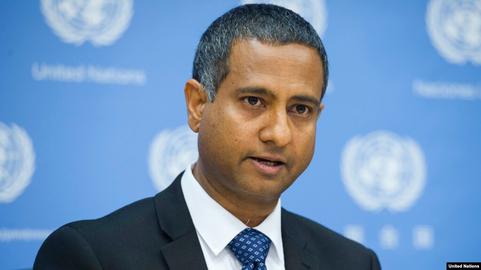

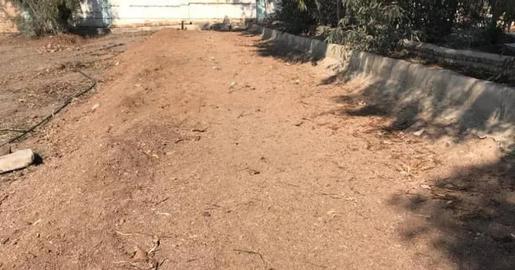
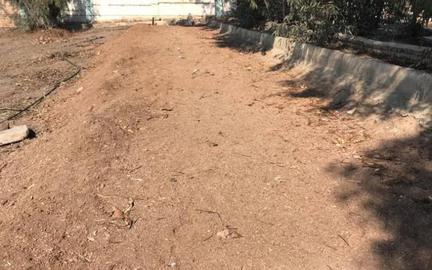

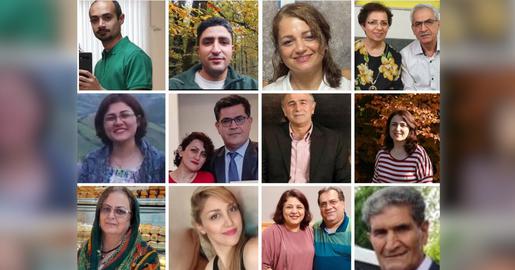




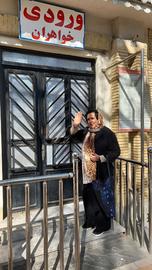




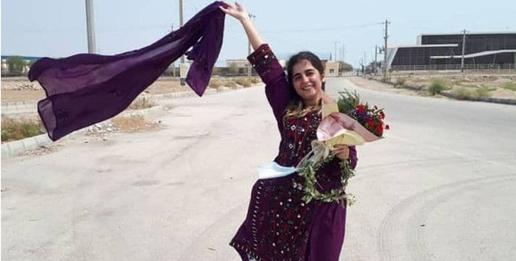
comments